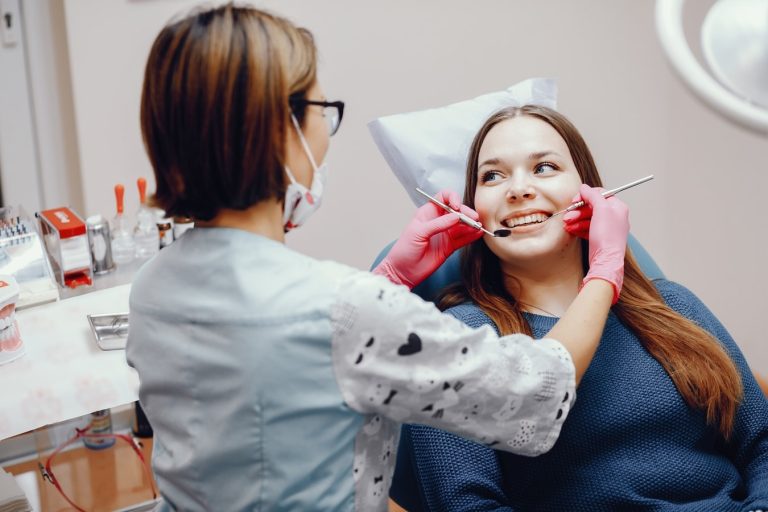Hot flashes and night sweats are among the most notorious ailments of menopause. But you might also want to pay attention to your teeth and gums. “I’m not sure people know that,” said Dr. Thomas Sollecito, chief of oral medicine at the University of Pennsylvania. Hormonal changes—mainly a sharp drop in estrogen—can reduce bone density and saliva production and damage your gums. All of these can affect your teeth. Oral care experts say there are ways to counteract these effects and keep your menopausal mouth healthy.
Menopause, perimenopause and dental symptoms
Menopause occurs when a woman goes 12 consecutive months without a period. However, some of the hormone-related dental problems can begin during perimenopause, when the ovaries gradually produce less estrogen, said Dr. Maiara Hister-Cockrell, a dentist at the University of Texas Health San Antonio.
One of the biggest concerns is less saliva, which Sollecito called “one of the most important fluids in our body.” When saliva flow slows, it can cause dry mouth, which carries a greater risk of oral pain, yeast infections and tooth decay, Cockrell said.
Less saliva also means less of the bacteria-killing enzymes and minerals that strengthen teeth, said Dr. Sally Cram, a periodontist in Washington, D.C. When your mouth is dry, she said, “those bacteria multiply and you’re more susceptible you get tooth decay.” And if the cavity swells, tooth loss is possible.
Decreased bone density and receding gums exacerbate these problems. If the socket holding the tooth is less dense, Sollecito said, it is more vulnerable to bone loss. And receding gums can leave certain tooth surfaces without the enamel that protects them from cavities. Women at this stage of life are also more likely to develop periodontal disease, when plaque and bacteria build up under the gums and around the teeth.
“The gum tissue starts to redden and swell,” said Cram, a spokesman for the American Dental Association. “It bleeds and starts to pull away from the teeth, creating deeper fissures around the teeth that are much harder to keep clean.” Some people experience “burnout syndrome”. Hister-Cockrell said a burning sensation can extend to the tongue, palate and lips. “As you could imagine,” added Sollecito, “this could all really get out of hand.”
What can you do?
The first line of defense, experts said, is good oral hygiene and nutrition. Eat a balanced diet low in sweets and rich in calcium-rich foods. Brush carefully with fluoride toothpaste at least twice a day and floss regularly. “An electric toothbrush can be more helpful than brushing your teeth by hand,” Cram said. “Visit your dentist regularly and ask: Am I doing a good job? And if I’m not, what could help me do a better job?’
Patients should also ask their dentist if they should visit more than twice a year, as well as consider in-office fluoride treatments to strengthen the surface of their teeth and prescription high-fluoride toothpaste. At home, experts said, treating dry mouth is a priority. So stay hydrated.
“None of us really drink enough water during the day,” Cram said. People can also use over-the-counter dry mouth sprays, lozenges or rinses. In severe cases, Sollecito said they can ask their dentist about prescription drugs that increase the amount of saliva in the mouth, but have side effects. There are also prescription medications for burning mouth syndrome. “The bottom line,” Cram said, “is that most oral disease and menopausal problems are completely preventable” by paying attention, taking good care of your teeth at home and going to the dentist regularly.

